- Home
- David Brin
The Uplift War u-3 Page 3
The Uplift War u-3 Read online
Page 3
There was finality in his voice, and Athaclena knew that any further word of protest would accomplish nothing but to make her look foolish in his eyes. Their hands met around the locket, long fingers intertwining, and they walked silently out of the room together. It seemed, for a short span, as if they were not two but three, for the locket carried something of Mathicluanna. The moment was both sweet and painful.
Neo-chimp militia guards snapped to attention and opened the doors for them as they stepped out of the Ministry Building and into the clear, early spring sunshine. Uthacalthing accompanied Athaclena down to the curbside, where her backpack awaited her. Their hands parted, and Athaclena was left grasping her mother’s locket.
“Here comes Robert, right on time,” Uthacalthing said, shading his eyes. “His mother calls him unpunctual. But I have never known him to be late for anything that mattered.”
A battered floater wagon approached along the long gravel driveway, rolling past limousines and militia staff cars. Uthacalthing turned back to his daughter. “Do try to enjoy the Mountains of Mulun. I have seen them. They are quite beautiful. Look at this as an opportunity, Athaclena.”
She nodded. “I shall do as you asked, Father. I’ll spend the time improving my grasp of Anglic and of wolfling emotional patterns.”
“Good. And keep your eyes open for any signs or traces of the legendary Garthlings.”
Athaclena frowned. Her father’s late interest in odd wolf-ling folk tales had lately begun to resemble a fixation. And yet, one could never tell when Uthacalthing was being serious or simply setting up a complicated jest.
“I’ll watch out for signs, though the creatures are certainly mythical.”
Uthacalthing smiled. “I must go now. My love will travel with you. It will be a bird, hovering” — he motioned with his hands — “just over your shoulder.”
His tendrils touched hers briefly, and then he was gone, striding back up the steps to rejoin the worried colonials. Athaclena was left standing there, wondering why, in parting, Uthacalthing had used such a bizarre human metaphor.
How can love be a bird?
Sometimes Uthacalthing was so strange it frightened even her.
There was a crunching of gravel as the floater car settled down at the curb nearby. Robert Oneagle, the dark-haired young human who was to be her partner-in-exile, grinned and waved from behind the machine’s tiller, but it was easy to tell that his cheery demeanor was superficial, put on for her benefit. Deep down, Robert was nearly as unhappy about this trip as she was. Fate — and the imperious rule of adults — had thrown the two of them together in a direction neither of them would have chosen.
The crude glyph Athaclena formed — invisible to Robert — was little more than a sigh of resignation and defeat. But she kept up appearances with a carefully arranged Earthling-type smile of her own.
“Hello, Robert,” she said, and picked up her pack.
3
Galactics
The Suzerain of Propriety fluffed its feathery down, displaying at the roots of its still-white plumage the shimmering flow that foretold royalty. Proudly, the Suzerain of Propriety opped up onto the Perch of Pronouncement and chirped for attention.
The battleships of the Expeditionary Force were still in interspace, between the levels of the world. Battle was not imminent for some time yet. Because of this, the Suzerain of Propriety was still dominant and could interrupt the activities of the flagship’s crew.
Across the bridge, the Suzerain of Beam and Talon looked up from its own Perch of Command. The admiral shared with the Suzerain of Propriety the bright plumage of dominance. Nevertheless, there was no question of interfering when a religious pronouncement was about to be made. The admiral at once interrupted the stream of orders it had been chirping to subordinates and shifted into a stance of attentive reverence.
All through the bridge the noisy clamor of Gubru engineers and spacers quieted to a low chittering. Their four-footed Kwackoo clients ceased their cooing as well and settled down to listen.
Still the Suzerain of Propriety waited. It would not be proper to begin until all Three were present.
A hatchway dilated. In stepped the last of the masters of the expedition, the third member of the triarchy. As appropriate, the Suzerain of Cost and Caution wore the black tore of suspicion and doubt as it entered and found a comfortable perch, followed by a small covey of its accountants and bureaucrats.
For a moment their eyes met across the bridge. The tension among the Three had already begun, and it would grow in the weeks and months ahead, until the day when consensus was finally achieved — when they molted and a new queen emerged.
It was thrilling, sexual, exhilarating. None of them knew how it would end. Beam and Talon started with an advantage, of course, since this expedition would begin in battle. But that dominance did not have to last.
This moment, for instance, was clearly one for the priesthood.
All breaks turned as the Suzerain of Propriety lifted and flexed one leg, then the other, and prepared to pronounce. Soon a low crooning began to rise from the assembled avians.
— zzooon.
“We embark on a mission, holy mission,” the Suzerain fluted.
— Zzooon —
“Embarking on this mission, we must persevere”
— Zzooon —
“Persevere to accomplish four great tasks”
— Zzooon —
“Tasks which include Conquest for the glory of our Clan, zzooon”
— ZZooon —
“Conquest and Coercion, so we may gain the Secret, the Secret that the animal Earthlings clutch talon-tight, clutch to keep from us, zzooon”
— ZZooon —
“Conquest, Coercion, and Counting Coup upon our enemies winning honor and submitting our foes to shame, avoiding shame ourselves, zzooon”
— ZZooon —
“Avoiding shame, as well as Conquest and Coercion, and last, and last to prove our worthiness,
our worthiness before our ancestrals,
our worthiness before the Progenitors whose time of Return has surely come
Our worthiness of Mastery, zzzoooon”
The refrain was enthusiastic. — ZZzooon! —
The two other Suzerains bowed respectfully to the priest, and the ceremony was officially at an end. The Talon Soldiers and Spacers returned to work at once. But as the bureaucrats and civil servants retreated toward their own sheltered offices, they could be heard clearly but softly crooning.
“All… all… all of that. But one thing, one thing more…
“First of all… survival of the nest…”
The priest looked up sharply and saw a glint in the eye of the Suzerain of Cost and Caution. And in that instant it knew that its rival had won a subtle but important point. There was triumph in the other’s eye as it bowed again and hummed lowly. “Zooon.”
4
Robert
Dappled sunlight found gaps in the rain forest canopy, illuminating streaks of brilliant color in the dim, vine-laced avenue between. The fierce gales of mid-winter had ebbed some weeks back, but a stiff breeze served as a reminder of those days, causing boughs to dip and sway, and shaking loose moisture from the prior night’s rain. Droplets made fat, plinking sounds as they landed in little shaded pools.
It was quiet in the mountains overlooking the Vale of Sind. Perhaps more silent than a forest ought to be. The woods were lush, and yet their superficial beauty masked a sickness, a malaise arising from ancient wounds. Though the air carried a wealth of fecund odors, one of the strongest was a subtle hint of decay. It did not take an empath to know that this was a sad place. A melancholy world.
Indirectly, that sadness was what had brought Earthlings here. History had not yet written the final chapter on Garth, but the planet was already on a list. A list of dying worlds.
One shaft of daylight spotlighted a fan of multicolored vines, dangling in apparent disorder from the branches of a giant tree. Rob
ert Oneagle pointed in that direction. “You might want to examine those, Athaclena,” he said. “They can be trained, you know.”
The young Tymbrimi looked up from an orchidlike bloom she had been inspecting. She followed his gesture, peering past the bright, slanting columns of light. She spoke carefully in accented but clearly enunciated Anglic.
“What can be trained, Robert? All I see there are vines.”
Robert grinned. “Those very forest vines, Athaclena. They’re amazing things.”
Athaclena’s frown looked very human, in spite of the wide set of her oval eyes and the alien gold-flecked green of their large irises. Her slightly curved, delicate jaw and angled brow made the expression appear faintly ironic.
Of course, as the daughter of a diplomat Athaclena might have been taught to assume carefully tutored expressions at certain times when in the company of humans. Still, Robert was certain her frown conveyed genuine puzzlement. When she spoke, a lilt in her voice seemed to imply that Anglic was somehow limiting.
“Robert, you surely don’t mean that those hanging tendril-plants are pre-sentient, do you? There are a few autotrophic sophont races, of course, but this vegetation shows none of the signs. Anyway …” The frown intensified as she concentrated. From a fringe just above her ears her Tymbrimi ruff quivered as silvery tendrils waved in quest. “. . . Anyway, I can sense no emotional emissions from them at all.”
Robert grinned. “No, of course you can’t. I didn’t mean to imply they have any Uplift Potential, or even nervous systems per se. They’re just rain forest plants. But they do have a secret. Come on. I’ll show you.”
Athaclena nodded, another human gesture that might or might not be naturally Tymbrimi as well. She carefully replaced the flower she had been examining and stood up in a fluid, graceful movement.
The alien girl’s frame was slender, the proportions of her arms and legs different from the human norm — longer calves and less length in the thighs, for instance. Her slim, articulated pelvis flared from an even narrower waist. To Robert, she seemed to prowl in a faintly catlike manner that had fascinated him ever since she arrived on Garth, half a year ago.
That the Tymbrimi were lactating mammals he could tell by the outline of her upper breasts, provocatively evident even under her soft trail suit. He knew from his studies that Athaclena had two more pair, and a marsupial-like pouch as well. But those were not evident at present. Right now she seemed more human — or perhaps elfin — than alien.
“All right, Robert. I promised my father I would make the best of this enforced exile. Show me more of the wonders of this little planet.”
The tone in her voice was so heavy, so resigned, that Robert decided she had to be exaggerating for effect. The theatrical touch made her seem oddly more like a human teenager, and that in itself was a bit unnerving. He led her toward the cluster of vines. “It’s over here, where they converge down at the forest floor.”
Athaclena’s ruff — the helm of brown fur that began in a narrow stroke of down on her spine and rose up the back of her neck to end, caplike, in a widow’s peak above the bridge of her strong nose — was now puffed and riffled at the edges. Over her smooth, softly rounded ears the cilia of her Tymbrimi corona waved as if she were trying to pick out any trace of consciousness other than theirs in the narrow glade.
Robert reminded himself not to overrate Tymbrimi mental powers as humans so often did. The slender Galactics did have impressive abilities in detecting strong emotions and were supposed to have a talent for Grafting a form of art out of empathy itself. Nevertheless, true telepathy was no more common among Tymbrimi than among Earthlings.
Robert had to wonder what she was thinking. Could she know how, since they had left Port Helenia together, his fascination with her had grown? He hoped not. The feeling was one he wasn’t sure he even wanted to admit to himself yet.
The vines were thick, fibrous strands with knotty protrusions every half-meter or so. They converged from many different directions upon this shallow forest clearing. Robert shoved a cluster of the multicolored cables aside to show Athaclena that all of them terminated in a single small pool of umber-colored water.
He explained. “These ponds are found all over this continent, each connected to the others by this vast network of vines. They play a vital role in the rain forest ecosystem. No other shrubs grow near these catchments where the vines do their work.”
Athaclena knelt to get a better view. Her corona still waved and she seemed interested.
“Why is the pool colored so? Is there an impurity in the water?”
“Yes, that’s right. If we had an analysis kit I could take you from pond to pond and demonstrate that each little puddle has a slight overabundance of a different trace element or chemical. “The vines seem to form a network among the giant trees, carrying nutrients abundant in one area to other places where they’re lacking.”
“A trade compact!” Athaclena’s ruff expanded in one of the few purely Tymbrimi expressions Robert was certain he understood. For the first time since they had left the” city together he saw her clearly excited by something.
He wondered if she was at that moment Grafting an “empathy-glyph,” that weird art form that some humans swore they could sense, and even learn to understand a little. Robert knew the feathery tendrils of the Tymbrimi corona were involved in the process, somehow. Once, while accompanying his mother to a diplomatic reception, he’d noticed something that had to have been a glyph — floating, it seemed, above the ruff of the Tymbrimi Ambassador, Uthacalthing.
It had been a strange, fleeting sensation — as if he had caught something which could only be looked at with the blind spot of his eye, which fled out of view whenever he tried to focus on it. Then, as quickly as he had become aware of it, the glimpse vanished. In the end, he was left unsure it had been anything but his imagination after all.
“The relationship is symbiotic, of course,” Athaclena pronounced. Robert blinked. She was talking about the vines, of course.
“Uh, right again. The vines take nourishment from the great trees, and in exchange they transport nutrients the trees’ roots can’t dvaw out of the poor soil. They also flush out toxins and dispose of them at great distances. Pools like this one serve as banks where the vines come together to stockpile and trade important chemicals.”
“Incredible.” Athaclena examined the rootlets. “It mimics the self-interest trade patterns of sentient beings. And I suppose it is logical that plants would evolve this technique sometime, somewhere. I believe the Kanten might have begun in such a way, before the Linten gardeners uplifted them and made them starfarers.”
She looked up at Robert. “Is this phenomenon catalogued? The Z’Tang were supposed to have surveyed Garth for the Institutes before the planet was passed over to you humans. I’m surprised I never heard of this.”
Robert allowed himself a trace of a smile. “Sure, the ZTang report to the Great Library mentions the vines’ chemical transfer properties. Part of the tragedy of Garth was that the network seemed on the verge of total collapse before Earth was granted a leasehold here. And if that actually happens half this continent will turn into desert.
“Rut the Z’Tang missed something crucial. They never seem to have noticed that the vines move about the forest, very slowly, seeking new minerals for their host trees. The forest, as an active trading community, adapts. It changes. There’s actual hope that, with the right helpful nudge here and there, the network might become a centerpiece in the recovery of the planet’s ecosphere. If so, we may be able to make a tidy profit selling the technique to certain parties elsewhere.”
He had expected her to be pleased, but when Athaclena let the rootlets fall back into the umber water she turned to him with a cool tone. “You sound proud to have caught so careful and intellectual an elder race as the Z’Tang in a mistake, Robert. As one of your teledramas might put it, ‘The Eatees and their Library are caught with egg on their faces once again.’ Is that it?”
/>
“Now wait a minute. I—”
“Tell me, do you humans plan to hoard this information, gloating over your cleverness each time you dole out portions? Or will you flaunt it, crying far and wide what any race with sense already knows — that the Great Library is not and never has been perfect?”
Robert winced. The stereotypical Tymbrimi, as pictured by most Earthlings, was adaptable, wise, and often mischievous. But right now Athaclena sounded more like any irritable, opinionated young fern with a chip on her shoulder.
True, some Earthlings went too far in criticizing Galactic civilization. As the first known “wolfling” race in over fifty megayears, humans sometimes boasted too loudly that they were the only species now living who had bootstrapped themselves into space without anybody’s help. What need had they to take for granted everything found in the Great Library of the Five Galaxies? Terran popular media tended to encourage an attitude of contempt for aliens who would rather look things up than find out for themselves.
There was a reason for encouraging this stance. The alternative, according to Terragens psychological scientists, would be a crushing racial’ inferiority complex. Pride was a vital thing for the only “backward” clan in the known universe. It stood between humanity and despair.
Unfortunately, the attitude had also alienated some species who might otherwise have been friendly to Mankind.
But on that count, were Athaclena’s people all that innocent? The Tymbrimi, also, were famed for finding loopholes in tradition and for not being satisfied with what was inherited from the past.
“When will you humans learn that the universe is dangerous, that there are many ancient and powerful clans who have no love of upstarts, especially newcomers who brashly set off changes without understanding the likely consequences!”
Now Robert knew what Athaclena was referring to, what the real source of this outburst was. He rose from the poolside and dusted his hands. “Look, neither of us really knows what’s going on out there in the galaxy right now. But it’s hardly our fault that a dolphin-crewed starship—”

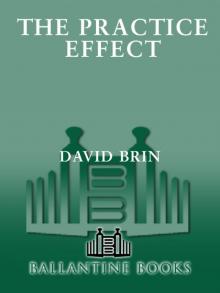 The Practice Effect
The Practice Effect Infinity's Shore
Infinity's Shore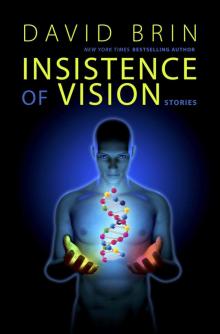 Insistence of Vision
Insistence of Vision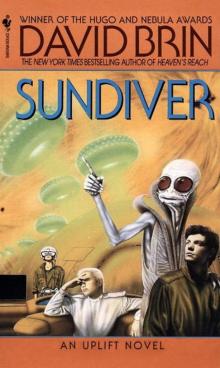 Sundiver
Sundiver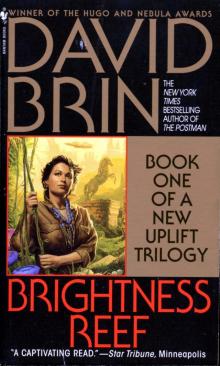 Brightness Reef
Brightness Reef Existence
Existence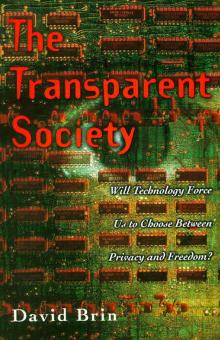 The Transparent Society
The Transparent Society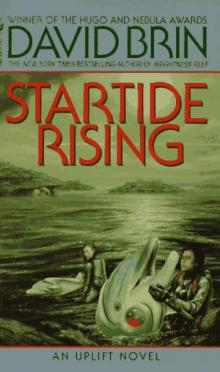 Startide Rising
Startide Rising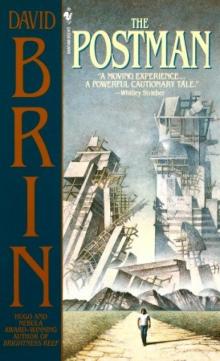 The Postman
The Postman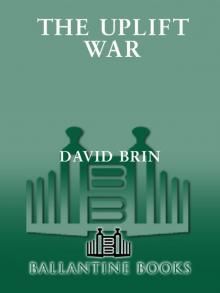 The Uplift War
The Uplift War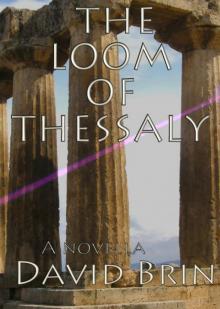 The Loom of Thessaly
The Loom of Thessaly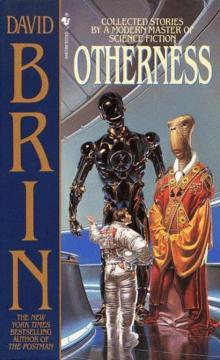 Otherness
Otherness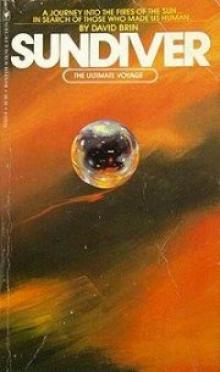 Sundiver u-1
Sundiver u-1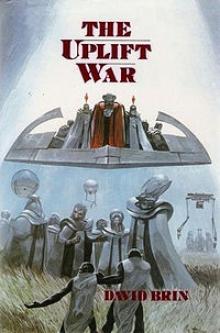 The Uplift War u-3
The Uplift War u-3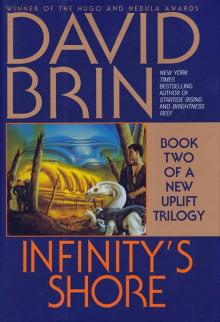 Infinity's Shore u-5
Infinity's Shore u-5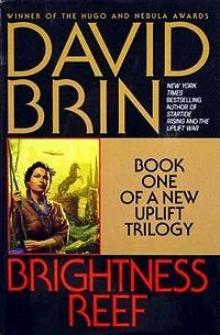 Brightness Reef u-4
Brightness Reef u-4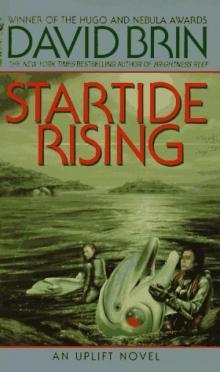 Uplift 2 - Startide Rising
Uplift 2 - Startide Rising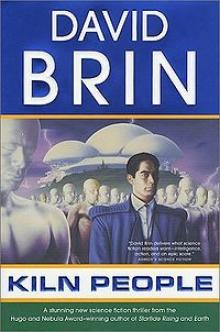 Kiln People
Kiln People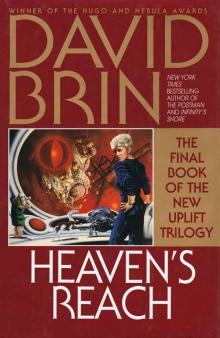 Heaven's Reach u-6
Heaven's Reach u-6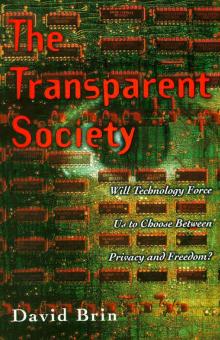 The Transparent Society: Will Technology Force Us to Choose Between Privacy and Freedom?
The Transparent Society: Will Technology Force Us to Choose Between Privacy and Freedom?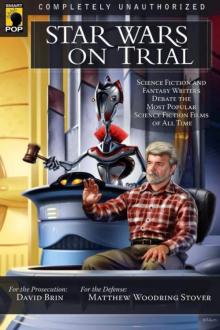 Star Wars on Trial
Star Wars on Trial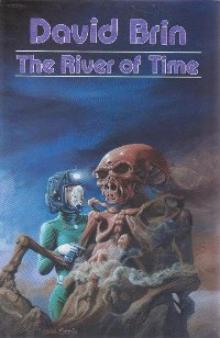 Lungfish
Lungfish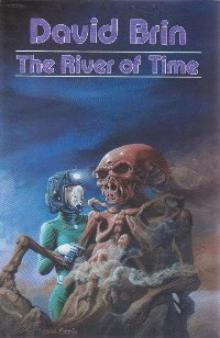 Tank Farm Dynamo
Tank Farm Dynamo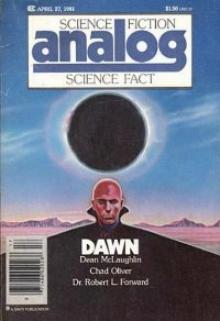 Just a Hint
Just a Hint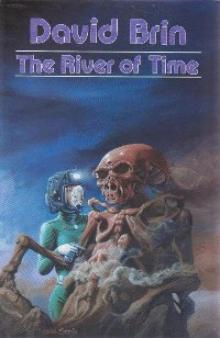 A Stage of Memory
A Stage of Memory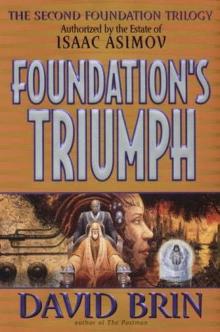 Foundation’s Triumph sf-3
Foundation’s Triumph sf-3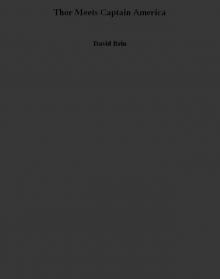 Thor Meets Captain America
Thor Meets Captain America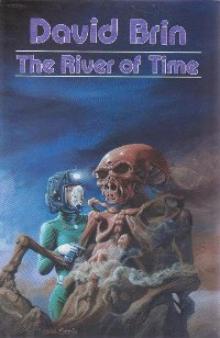 Senses Three and Six
Senses Three and Six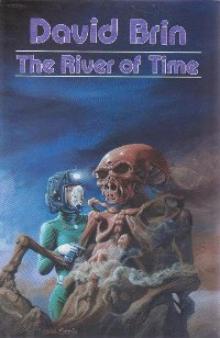 The River of Time
The River of Time Chasing Shadows: Visions of Our Coming Transparent World
Chasing Shadows: Visions of Our Coming Transparent World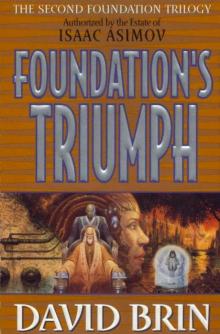 Foundation's Triumph
Foundation's Triumph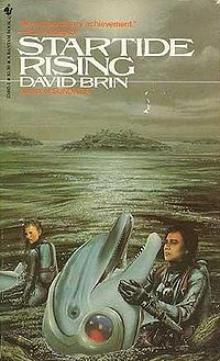 Startide Rising u-2
Startide Rising u-2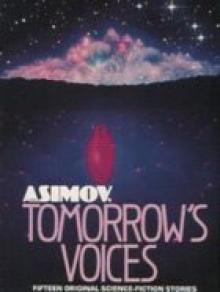 The Fourth Vocation of George Gustaf
The Fourth Vocation of George Gustaf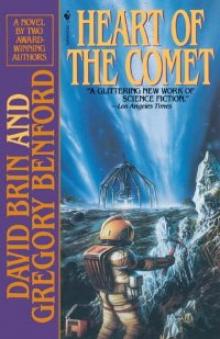 The Heart of the Comet
The Heart of the Comet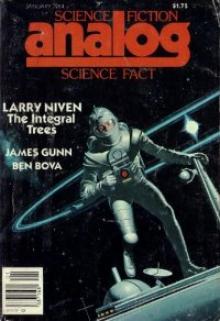 The Crystal Spheres
The Crystal Spheres